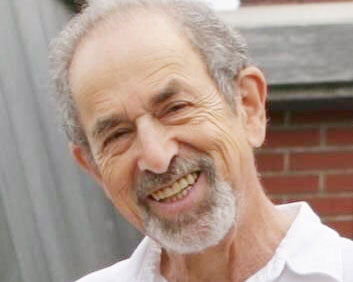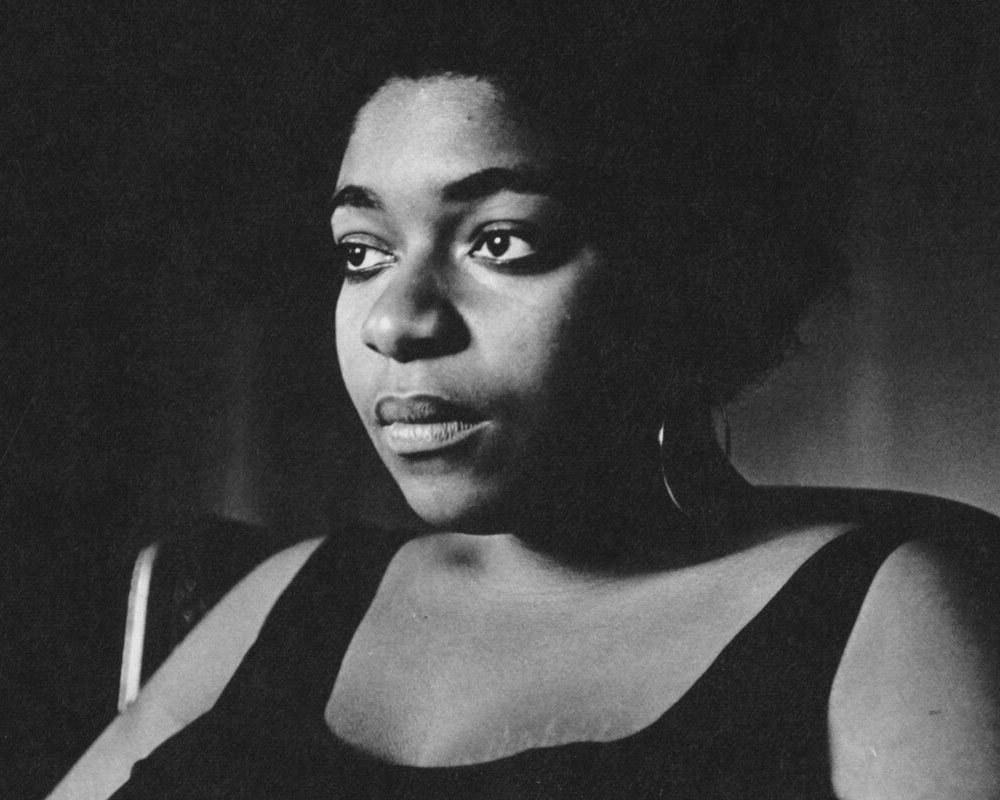Robert Allen Wayne ’76

Robert and Roxie at the Frey II House in Palm Springs
November 28, 2021, in New York City, of pancreatic cancer.
CONTRIBUTED BY TOM RHOADS ’75
Robert was born in Chicago, Illinois, to Leonard Wayne, a decorated World War II combat aviator and CFO/executive for Holiday Inn and other hotels, and Marilyn Wayne, a housewife and greeter in the hospitality industry. At a very early age, Robert showed academic promise and a gift for problem solving, puzzles, and navigation. He received his high school diploma from Chicago’s Loyola Academy and became a National Merit Scholar. He excelled academically, including at languages, algebra, calculus, and physics, but when it came time to declare a major at Reed, he chose theatre with a minor in economics, to the great consternation of his early advisor, Prof. Frederic Rothchild [music 1953–78], and his disappointed father.
Robert flourished at Reed. He immersed himself in the arts, took piano lessons with Fred, studied dance with Prof. Judith Massee [1968–98], and relished the many roles he took on in Reed theatrical productions, often alongside Loraine Shields ’74, and in On the Verge, a play written by Eric Overmyer ’73. Initially unsure of himself and ungainly, Robert transformed himself from a nerd to a prince; he came out, fell in love, and formed many lifelong friendships, including with Loraine Shields, Cathy Altman ’78, Rube Warren ’75, Robert Cormier ’75, Rahoul Contractor, Tom Rhoads ’75, Judy Levitow ’74, and Cecilia Roque ’75. He wrote his thesis, “The Process of Directing Musset’s The Candlestick,” advised by Prof. Larry Oliver [theatre 1972–77].
The financial support Robert received from home wavered—perhaps as a reaction to his major—and he took on part-time jobs while attending Reed, most notably at Harry and Mary Okamoto’s fruit stand on Holgate, where he stocked shelves. During the summers, he worked as a night auditor at various Holiday Inns in San Francisco, Honolulu, and Boston. Working the odd jobs, it took him an extra year to graduate from Reed. He then moved to New York City, where he lived with his Reed friend Cathy Altman until he took occupancy of a rent-stabilized apartment on Bank Street. That became his home for 44 years, with the exception of the four years he lived in Palm Springs, California.
Buoyed by his love of theatre and success at Reed, Robert began auditioning for roles, studied with Stella Adler, acted in several soap operas, and was a body double for actor Gary Oldman. He supported himself by working in nightclubs, catering, doing odd jobs, as a switchboard operator at the Middletown Hotel, and as a waiter at several upscale French restaurants. It was a heady time and there was a great sense of freedom. Robert fell in love again, this time with Scott Sherman, with whom he lived for a while and spent summers on Fire Island. He traveled to France and immersed himself in the culture there.
The AIDS epidemic had yet to fully emerge, but by the mid to late-’80s there were signs that gay men were beginning to mysteriously get sick and die. Robert Cormier, who had been Robert’s lover at Reed and had moved to New York a year before Robert, became sick and hung on for several years, during which time Robert attended to him and his roommate, Jerry. Robert Cormier died in November 1989.
Finding sustained success in the New York City theatre world proved difficult, and it was with dawning recognition that Robert decided to switch gears. He applied to the Yale School of Management, specializing in the arts. His long-dormant financial/quantitative skills were reawakened, and Robert moved to New Haven during the week to attend classes. Much older than his fellow classmates, Robert nonetheless excelled in the program, and he graduated in 1993 with a master’s in private and public management. His immersion in the arts at Reed along with his master’s degree from Yale allowed him to marry his love for art and culture with an innate talent for quantitative problem-solving—paving the way for a succession of increasingly more responsible financial/management jobs in the nonprofit arts arena.
He worked as company manager for the Trisha Brown Dance Company right out of Yale, and then ascended to the role of chief financial officer at various institutions, including the New York Theatre Workshop, the College Art Association, and the Palm Springs Art Museum; he was CFO and COO at the Astoria Museum of the Moving Image. Robert found time to get another master’s degree, one in nonprofit accounting from Baruch College, where he graduated at the top of his class; and while in Palm Springs he completed his CPA license, passing all four tests on his first try.
During the four-year period that Robert worked for the Palm Springs Art Museum, he was given the use of the Frey House II, a modernist masterpiece owned by the museum. And, nearby, his good friend Barbara Howard, from New York Theatre Workshop days, owned Casablanca, built by her father Jack Warner, where Robert and his father, along with Robert’s beloved dog, Roxie, were frequent visitors. By this time, Robert and his father had long since reconciled. Leonard was living in Las Vegas, and he took great pride in Robert’s many accomplishments.
Robert’s gamble of getting a management degree at Yale later in life had given him another avenue for working in the arts, this time behind the scenes but always in the company of creative people. Just as he had established strong bonds with the board and artistic staff at the New York Theatre Workshop, Robert likewise made himself invaluable in Palm Springs while spending quality time with his aging father.
A kind, self-effacing, and compassionate friend, Robert wore his incredible intellect lightly. He was easy to be with—shyness masked a giddy affability and innate kindness—and he sympathized with the plight of those in crisis or who were less fortunate. His love knew no bounds for his beloved dogs, Lucy and Roxie.
When Leonard passed away in 2012 at the age of 92, Robert vowed to return to New York. He worked brief stints at the Astoria Museum of the Moving Image in Queens and at MoMA/PS1, but in 2016 decided to retire and enjoy his life. He took on a number of volunteer assignments: with God’s Love We Deliver and Alcoholics Anonymous (AA), he traveled widely and helped support and care for his aging mother, who passed away at the age of 98 in September 2020. He took classes at Tibet House and Menla and began meditating.
One of the joys of his retirement years was his involvement with the Yale alumni association in New York City, where he joined a class on religion and enrolled in an ongoing poetry-writing workshop. Though he only very briefly had time to find his voice before getting very sick, Robert penned this poem near the end of his life:
Fire Island Pines
It’s cooler here than in the city.
The breeze blows more freely
Tracked by swaying branches and rainbow flags on poles.
A sandbar
To the south is the ocean, to the north
the bay
Different kinds of water
One crashing and ebbing and flowing
The other lapping.
For all its non-cityness, the population is rather dense.
Birds’ melodies eclipsed by 70’s disco music and raucous chatter.
One can always take a walk.
The world expands very quickly
On the boardwalk to the beach
The horizon, shimmering and vast – eternity!
Oops, interrupted by glistening, prancing, posing bodies.
Each with its own cadence
Seemingly unself-conscious, but definitely self-aware
I pass unnoticed and walk on towards the sun on the sea.
Appeared in Reed magazine: March 2023





![Photo of Prof. Marvin Levich [philosophy 1953–94]](https://www.reed.edu/reed-magazine/in-memoriam/assets/images/2022/LTL-levich1.jpg)
![Photo of President Paul E. Bragdon [1971–88]](https://www.reed.edu/reed-magazine/in-memoriam/assets/images/2020/Bragdon.jpg)
![Photo of Prof. Edward Barton Segel [history 1973–2011]](https://www.reed.edu/reed-magazine/in-memoriam/assets/images/2020/Segel.jpg)








































































